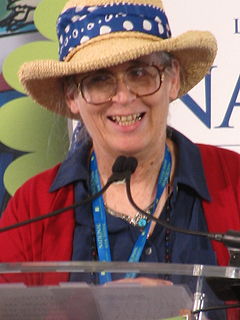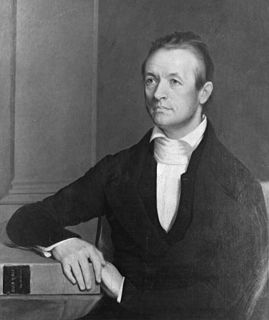A Quote by Stephen Jay Gould
I love to read the dedications of old books written in monarchies for they invariably honor some (usually insignificant) knight or duke with fulsome words of sycophantic insincerity, praising him as the light of the universe (in hopes, no doubt, for a few ducats to support future work); this old practice makes me feel like such an honest and upright man, by comparison, when I put a positive spin, perhaps ever so slightly exaggerated, on a grant proposal.
Quote Topics
Books
Comparison
Doubt
Duke
Ever
Exaggerated
Feel
Few
Future
Future Work
Grant
Him
Honest
Honor
Hopes
Insignificant
Insincerity
Invariably
Knight
Light
Like
Love
Love To Read
Makes
Man
Me
No Doubt
Old
Old Books
Perhaps
Positive
Practice
Practice Makes
Praising
Proposal
Put
Read
Right Man
Slightly
Some
Spin
Support
Universe
Upright
Upright Man
Words
Work
Written
Related Quotes
You have read very good books, I am sure; there is an excellent book however, that never grows old; it is the one that God has written on every plant, on every grain of sand, in yourself; it is the book of Divine love. Give, therefore, your preference to that beautiful book and add to it a few pages of admiration and gratefulness. Read and understand all other books in the light of this one.
We who have seen him now, light on his feet, smooth moving as a leopard, a young man with an old man's science, the most beautiful fighting machine I have ever seen, may live to see him fat, slow, old, and bald taking a beating from a younger man. But I would like to hazard a prediction that whoever beats Joe Louis in an honest fight in the next fifteen years will have to get up the floor to do it.
...Generally people don't recomend this type of book at all. It is far too interesting. Perhaps you have had other books recomended to you. Perhaps, even, you have been given books by friends, parents, teachers, then told that these books are the type you have to read. Those books are invariably described as "important"- which in my experience, pretty much means that they're boring. (words like meaningful and thoughtful are other good clues.)
Nearly all literature, in one sense, is made up of guide-books. Old ones tell us the ways our fathers went, through the thoroughfares and courts of old; but how few of those former places can their posterity trace, amid avenues of modern erections; to how few is the old guide-book now a clew! Every age makes its own guide-books, and the old ones are used for waste paper.
Perhaps, after all, romance did not come into one’s life with pomp and blare, like a gay knight riding down; perhaps it crept to one’s side like an old friend through quiet ways; perhaps it revealed itself in seeming prose, until some sudden shaft of illumination flung athwart its pages betrayed the rhythm and the music, perhaps . . . perhaps . . . love unfolded naturally out of a beautiful friendship, as a golden-hearted rose slipping from its green sheath.
Dialogue that is written in dialect is very tiring to read. If you can do it brilliantly, fine. If other writers read your work and rave about your use of dialect, go for it. But be positive that you do it well, because otherwise it is a lot of work to read short stories or novels that are written in dialect. It makes our necks feel funny.
I doubt if I shall ever have time to read the book again -- there are too many new ones coming out all the time which I want to read. Yet an old book has something for me which no new book can ever have -- for at every reading the memories and atmosphere of other readings come back and I am reading old years as well as an old book.
There yet remains but one concluding tale, And then this chronicle of mine is ended - Fulfilled, the duty God ordained to me, A sinner. Not without purpose did the Lord, Put me to witness much for many years, And educate me in the love of books. One day some indefatigable monk, Will find my conscientious, unsigned work; Like me, he will light up his ikon-lamp, And, shaking from the scroll the age-old dust, He will transcribe these tales in all their truth.




































